The Purpose of Education
(Home-school update - Part I)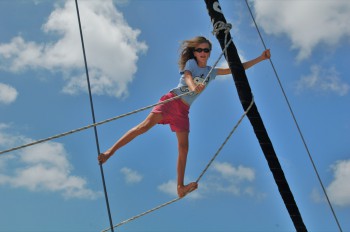
From time to time we get e-mails from people who are excited to hear about our very informal home-schooling method but who want to know, “What happened next?”
The last time I wrote on this subject Caesar and Xoë were struggling with their A-levels. But that was four years ago! Did they pass the exams? Did they qualify for university? And what are they doing now?
How does an utterly un-schooled child fare when the time comes from him to leave the nest?
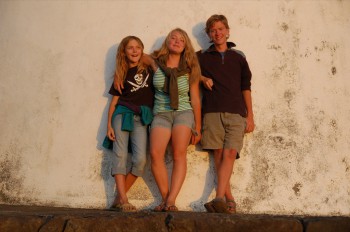
To recap (for those who are not acquainted with this family), Caesar and Xoë and their younger sister, Roxanne, were born during our cruising adventures and have spent their entire childhood travelling the world. Since every country has its own methods and its own standards of education it would not have been very easy for them to hop from one school to the next as we made our way from this side of the ocean to the other; but that was not our only reason for keeping them out of the system. Fundamentally, we home-schooled our kids because we reckoned that we could do a much better job of it than the government institutions.
Education is an admirable thing, but it is well to remember from time to time that nothing worth knowing can be taught.
— Oscar Wilde (Irish playwright)
Before we go any further, and answer those opening questions – before we even get round to talking about the advantages of home-schooling – we need to consider the true purpose of education. Is it simply to equip our kids to grab well paid jobs, thereby enabling them to earn the money to afford a nice house and drive an expensive car?
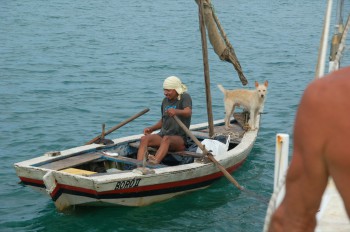
All over Africa children go to school in order to learn the things which will liberate them from the peasant lifestyle of their parents. They go to school to learn to read and write and do sums, so that they can get jobs in the city working as bank clerks and shop attendants. A few excel and exceed the requirements. These scholars go on to higher education and to university, and they become their country’s professionals – they become lawyers, doctors, designers, journalists, and so forth. Essentially, this is the way things were in the West too, eighty or one hundred years ago. And when my parents packed me off to school they probably viewed the process in much the same light. Having, himself, climbed above a working-class background and attained an office job, my father, certainly, hoped that his offspring would ascend the tree still further. He planned that we should all go to university and soar.
In the event, one of us soared off to Cambridge and Oxford, but then declined to come down and get a real job, with a professional’s real pay. (He still inhabits a university, in the role of professor.) One carried out orders and went off to university but found that there were no jobs waiting – and so she now does much the same sort of clerical work as Dad did. And the last threw away the supposedly golden opportunity, burnt her boats… and went sailing.
We’re all very happy, I’m sure, but none of us is doing what we were educated to do. So – I repeat – what is schooling for, these days?
Education is what remains after one has forgotten what one has learned in school.
— Albert Einstein (Genius)
In England most schools follow the National Curriculum, teaching their young students according to the ideas of a bunch of unseen men and women who believe that they know what is best for the kids and for society. A similar, even more rigid system prevails in France, and I suppose that most Western governments pursue arrangements which are not too different. All aim to turn out literate, numerate citizens who will find places in adult society, and all claim to fulfil the needs of the developing mind. But do they?
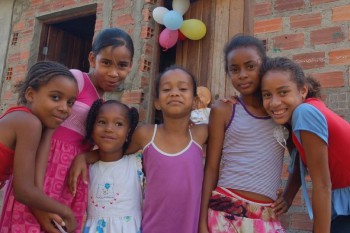
The experts can’t see into the future and know what kind of learning will be the most useful in twelve or twenty years’ time. Seemingly, they can’t even predict what kind of learning will land a person with a rewarding job, or anticipate the availability of work for people whose training has been conducted precisely according to their recipe. Of the girls that I was at school with it seems that fewer than 10% ended up working in careers which are related to their university education, and I estimate that 50% retrained in order to get work. So – what makes today’s experts think that they know any better what the future holds?
And what makes them suppose that they know what is best for kids that they have not even met?
Do not train a child to learn by force or harshness; but direct them to it by what amuses their minds, so that you may be better able to discover with accuracy the peculiar bent of the genius of each.
— Plato (Greek philosopher and mathematician)
There are many different kinds of schools, but one problem which they all share is that they don’t cater to the individual. The more cynical amongst us would argue that the chief purpose of most schooling is, indeed, to suppress individuality. Its objective is to mould the minds of the juvenile masses and turn out ideal citizens – ambitious but also obedient. Ambitious, because the system under which we all live depends for its existence upon people who are urgently seeking to improve their financial status. Obedient, because the last thing the System wants is for people to question the rights and wrongs of its inner workings.
We don’t need no education. We don’t need no thought control. … Hey, teacher! Leave those kids alone! All in all you’re just another brick in the wall.
— Roger Waters (Pink Floyd)
The whole educational and professional training system is a very elaborate filter, which just weeds out people who are too independent, and who think for themselves, and who don’t know how to be submissive, and so on because they’re dysfunctional to the institutions.
— Noam Chomsky (American philosopher and political activist)
Whether Capitalist or Communist, the System needs people who are willing to spend their entire life working in order that they be able to consume. Citizens must be, at one and the same time, the producers of commodities and the buyers of commodities; otherwise the System falls apart. Nowadays, of course, the System is an international one. The international corporations at its hub are eager for us to spend our money on their foreign-made goods and eager, meanwhile, to broaden their market by creating, from the raw material of displaced peasant farmers, a new batch of consumers. And so the wheel goes round and round, ever faster; and so we guzzle ever more of the planet’s irreplaceable commodities – its minerals, its soil, its virgin forests – we fill the atmosphere with carbon gases, and we head more and more rapidly towards the extinction of our own species…
What does education often do? It makes a straight-cut ditch of a free, meandering brook.
— Henry David Thoreau (19th century political activist, philosopher, proto-environmentalist, and author of Walden)
But, enough of this happy talk. Whilst I would agree that schools do, indeed, have their role to play in creating the right-shaped citizens I think it is clear that television, DVDs, and computer games have a far greater influence. If you simply want to protect your child’s mind from the deviant directives of people wanting him to grow up as a consumer, start by doing away with that little lot. Without the assistance of celebrity TV, Barbie films, and other subtle forms of advertising the school curriculum loses its punch. Even the implicit expectation which underlies the whole business – the expectation for the child to achieve academic success and go on to Greater Things – can be easily countermanded.
However, even without the mind-control aspect school does have many inherent problems, chief amongst which – as I have said – is the failure to cater to individual needs.
Genius without education is like silver in the mine.
— Benjamin Franklin (Freemason, political activist, Founding Father of the United States, and popularly known as “the only President of the United States who was never President”.)
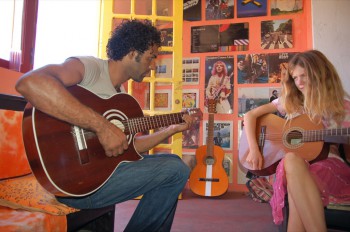
Franklin was right. There must be countless thousands of people in every generation who are born with special gifts but who, for lack of opportunity, never get the chance to develop them. However, the school system, as a general rule, does not uncover this wealth or bring it to the surface. As Einstein said, Everybody is a genius – but if you try to teach a fish to climb a tree it will spend its whole life thinking it is stupid
. Education needs to be relevant. How many might-have-been musicians and singers are there whose talents were left “in the mine” while their teachers tried to tap feeble veins of mathematics and physics? As Richard Williamson said, in the foreword to Roxanne’s book, There are millions of sad cases in history where these gifts whither without having the good fortune to have an encouraging environment [in which to grow].
Where there’s a will there’s a way, ‘tis said; but the rule does not apply to education. No matter how hard the teacher tries – no matter how kind-hearted and wise he or she may be – education is not a one-size-fits-all garment. It has to be made to measure.
There they sit – twenty five or thirty individual minds – and all are being force-fed the same diet. No matter that the offerings might be juicily presented according to the latest idea of what makes knowledge appetising. The fact of the matter is that one child’s meat is another’s poison.
Study without desire spoils the memory, and it retains nothing that it takes in.
— Leonardo da Vinci
I absolutely hated school. I absolutely did not care tuppence about the Repeal of the Corn Laws, or the molecular structure of copper sulphate, or the shoe-making industry in Brazil. In fact, by the time they got round to telling me about him I didn’t even care to know about Leonardo da Vinci. By the time they got round to trying to teach me about things which might have been interesting to me, I had put up a brick wall – as do most school kids. By the time they were telling me about stuff that (I now know) I would have found interesting they had already made education repugnant to me. I left school vowing never ever to sit another exam or study another text book.
It is, in fact, nothing short of a miracle that the modern methods of instruction have not yet entirely strangled the holy curiosity of inquiry; for this delicate little plant, aside from stimulation, stands mainly in need of freedom. Without this it goes to wrack and ruin without fail.
— Albert Einstein
John Holt, an American teacher and home-school enthusiast, told a nice tale about some kids who were trying to escape from a compulsory music recital. “It’s no use,” one called out to the other, as they ran down the corridor. “They’ve got all the exits locked!”
Holt was also an amateur cellist, and dead keen on classical music, but he certainly didn’t want anybody being forced to listen to the recital. He didn’t want anybody being forced to do anything. As he said to the headmaster, afterwards, “Are you trying to do for Beethoven what you’ve already done for Shakespeare?”
The mere fact that Holt was both a teacher and a home-school enthusiast speaks volumes. At first it would seem like contradiction. Surely, teachers believe in what they do?
Some may, but personally I’ve yet to meet one who thought that keeping kids locked up in a classroom was the best form of education. Many times, when asked about our DIY schooling experiences, I’ve raved about the advantages of the flexible, free-range method and railed on about schools, only to learn that my listener is a teacher… But as I begin to stutter my apologies, there is invariably agreement: “But you’re absolutely right! Home education is far more effective than classroom schooling.”
Seemingly, the men and women whose job it is to install society’s knowledge and skills are just as cramped by their situation as the ones they are supposed to be programming.
Fortunately, my teachers never tried to force me to learn about the history of my own local neighbourhood, or about how things with wings defy gravity. And thank heavens they never tried to tell me about Buddhism…! Each of these subjects subsequently became of great interest to me – but I’m certain that this would not be the case if my teachers had stirred them into the mix and rammed them down my throat with all that other crap.
Self-education is, I firmly believe, the only kind of education there is.
— Isaac Asimov (American bio-chemist, and author of 500 books)
The day after school finished for the last time I sat on the foreshore of the local harbour and cried. No – not for the fact that I would never again see the inside of that prison camp; oh, no! I cried for the waste of time. All those years – twelve long years, and the ones which, they say, are the best of our lives – twelve precious years wasted; stolen from me indeed! Twelve years which I could have spent LEARNING…! Truly, that was my thought! Ah, the irony…
As it happens, I broke that vow about never sitting another exam; but not for a very long time.
Much education today is monumentally ineffective. All too often we are giving young people cut flowers when we should be teaching them to grow their own plants.
— John W. Gardner (US politician)

By contrast, my own children, having never been coerced into learning, are still very eager for knowledge. Roxanne, for example, when asked to vote on the selection of a companion for our projected journey to Patagonia preferred the idea of a middle-aged oceanographer over that of an energetic youth. “I’d learn much more from the oceanographer,” she said.
Caesar, meanwhile, spends much of his day reading about such things as the environment, renewable energy, socio-economics, and politics. His main field of interest is still web-development and writing computer software, but he likes to approach the matter from a holistic standpoint, with due consideration given to details such as the time and energy taken to load a page…!
Education is our passport to the future, for tomorrow belongs to the people who prepare for it today.
— Malcolm X (Political activist)
No child raised on the ocean could fail to be aware of the natural environment and its fragility. No one brought up in a home which harvests its own electricity could fail to be wind and solar savvy. As you might guess from the preceding paragraphs, our socio-political thoughts and ideas were also broadcast to our offspring, albeit merely through the device of informal discussion. But – and here is the important thing – we never once obliged any of the kids to listen, read, or write about things which held for them no interest.
Nota Bene: I did not say that the kids were never obliged to write! (You can read more about my efforts to create a literate child from a bright, but decidedly unenthusiastic scholar in Part II of this article.)
Educating the mind without educating the heart is no education at all.
— Aristotle (Greek philosopher and polymath, student of Plato)
If you think back to your school-days, and in particular to your junior years, you will surely find that you remember very little of the information which the teachers were so eager to cram into your cerebrum. Every now and then some random snippet of knowledge will stand you in good stead – that’s what TV quizzes were invented for: to make us feel good about the useless facts which we cart around – but all that stuff about cocoa plantations in Ghana and tin-mining in Cornwall… that’s long gone, isn’t it?
What you probably will have taken away from those 12 years in school is the tools which have enabled you to educate yourself. (Tools, mark you, which can be installed in the home-schooler’s mind with little pain and in the course of a minimal number of hours…)
The other thing which you will have gained is an outlook on life: a complex mind-set which you apply, subconsciously, in any given situation; and, in particular, an attitude towards other people.
Education is simply the soul of a society as it passes from one generation to another.
— G.K. Chesterton (English novelist and playwright)
A modern school curriculum does more than teach reading, writing, and the theory known as the Big Bang. As has been said before, it also indoctrinates the student. Generally speaking, the indoctrination is very subtle. It’s not a case of standing in front of the class and telling them to work hard, fear poverty, and want nice clothes; it’s more a case of simply behaving as if the desire for such things is a forgone conclusion. And, to a large extent, there is no acting necessary: the teacher has, herself, been programmed by school and by her university lecturers and by the TV, and she may never have questioned the idea that to be rich and powerful is desirable.
Ideally, what should be said to every child, repeatedly, throughout his or her school life is something like this: ‘You are in the process of being indoctrinated. We have not yet evolved a system of education that is not a system of indoctrination. … What you are being taught here is an amalgam of current prejudice and the choices of this particular culture. … It is a self-perpetuating system.
Those of you who are more robust and individual than others will be encouraged to leave, and you will find ways of educating yourselves … Those that stay must remember, always, that they are being moulded and patterned to fit into the narrow and particular needs of this particular society.
— Doris Lessing (Winner of the Nobel Prize for Literature 2007)
Amongst the people who occupied the Canary Islands before the Spanish rocked up, thievery was greatly admired – or so ‘tis said; but nowadays there are few amongst us who would dispute the idea that all forms of dishonesty are immoral. Thus, we see that indoctrination is specific to one society and, in broader terms, can be either negative or positive.
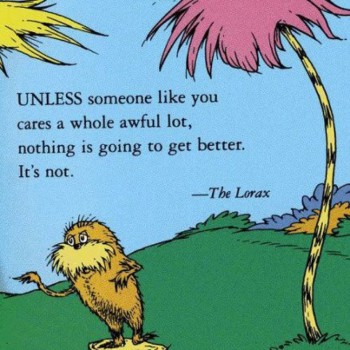
To a certain extent, all education is indoctrination. When we encouraged our kids to respect nature and never to harm animals we were programming them with our beliefs. When we told them that the planet’s resources were dwindling, and that its climate was warming, and suggested ways that we might deal with these problems, we were brainwashing them with our own ideas. And, likewise, when we taught them, by example, to make friends with strangers and to respect and like people regardless of their nationality, skin-colour, language, or religion we were passing along our own biases.
We also handed along an anarchic disrespect for authority; a disdain for spending time labouring to enrich another man; a critical, discerning attitude towards all written material; and a philosophy which holds recycling and DIY in far greater esteem than flash, new things. (In this family, if you have to buy it new, you’ve failed.)

Needless to say, we think that our particular attitudes and our convictions are the best. Whether or not you agree is neither here nor there; what matters is that you, too, have your own ideas, and they may not be the same ones that the local school is seeking to instil in its students. To a degree, you will be able to over-rule the input made by the teachers. You, as his parent, are a huge influence on your child’s mental development. But it’s worth noting that the time which a child spends in school and kicking around with his school mates is often far greater than the time he spends with Mum and Dad; so it’s certainly not something which can be wholly disregarded.

This is particularly the case with small children, whose minds are still very “soft” and malleable. At this present time it is common practice for women, needing to go out to work, to pack their infants off to nursery school. In this environment they will be shaped – whether or not the parents or the carers are aware of it. Infants arrive in the world pre-programmed to accept that whatever the adults of their species do is right and should be copied. Thus, their interactions with carers and teachers will be formative, and whether Mum and Dad approve of the form taken will be of no consequence; seeds will have been sown.
My hope and wish is that one day, formal education will pay attention to what I call education of the heart. Just as we take for granted the need to acquire proficiency in the basic academic subjects, I am hopeful that a time will come when we can take it for granted that children will learn, as part of the curriculum, the indispensability of inner values: love, compassion, justice, and forgiveness.
— Tenzin Gyatso (14th Dalai Lama)
There is no point in teaching a child to be clever if we do not, at the same time, teach him to be kind. In fact, cleverness without kindness is just a self-serving tool and a potential weapon. Alongside the knowledge of the environmental problems facing humankind we need to instil in our children a proper moral appreciation: an image of the world as one organism which cannot survive unless human beings desist from acting in the selfish, but ultimately self-destructive manner of cancer cells.
A human being is part of a whole, called by us The Universe; a part limited in time and space. He experiences himself, his thoughts, and feelings as something separate from the rest – a kind of optical delusion of his consciousness. The delusion is a kind of prison for us, restricting us to our own personal desires and to affection for a few persons nearest to us. Our task must be to free ourselves from this prison by widening our circle of compassion to embrace all living creatures and the whole of nature in its beauty.
— Einstein
One avowed aim of the UK school curriculum is that it should promote pupils’ spiritual, moral, social and cultural development. … It should pass on enduring values, develop pupils’ integrity and autonomy and help them to be responsible and caring citizens capable of contributing to the development of a just society. … It should develop their awareness and understanding of, and respect for, the environments in which they live, and secure their commitment to sustainable development. … It should promote pupils’ self-esteem and emotional well-being and help them to form and maintain worthwhile and satisfying relationships, based on respect for themselves and for others, at home, school, work and in the community. It should develop their ability to relate to others and work for the common good. It should enable pupils to respond positively to opportunities, challenges and responsibilities, to manage risk and to cope with change and adversity.
Needless to say, these are glorious objectives… and if the scheme worked then the country would now be overflowing with love, compassion, justice, and forgiveness.
If every 8 year old in the world is taught meditation we will eliminate violence from the world within one generation.
— Tenzin Gyatso (14th Dalai Lama)
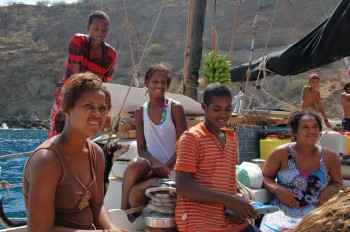
To be fair, I believe that these healthy attributes are on the increase in Britain. Our thinking, in the course of the past twenty years or so, seems to have been undergoing a revolution and increasing numbers of people are becoming more aware of our inter-dependency and our alikeness to one another. We are becoming more-kind-hearted and, in so becoming, are discovering greater happiness. This, at any rate, is my perception. It seems to me that we are rediscovering lost values and becoming more like the uneducated peasant people who one meets in many non-Westernised corners of the globe…
However, this new compassionate outlook is only to be found between individuals. Our businesses are still being run along lines which insist that financial profit is the highest goal: financial growth at all costs; money matters, and people don’t. Until we can expand our new, humanitarian consciousness so that it is the guiding force behind industry and commerce and behind our government, there will be no real progress.
At the present time Western society is moving in the opposite direction, towards ever greater glorification of Mammon and a sudden, almost brutal lack of even a pretence of concern for the hirelings who tread the grapes or turn the wheels of the machine. “Damn them; if they don’t like it they can leave! There are plenty more who will take their places!” Thus, the divide between super-rich, on the one hand, and the not-so-well-off and the downright-poor has become huge, and many people doing the sort of jobs which, twenty years ago, would have afforded them a mortgage on a three bedroom house are now finding it hard to scrape together the rent for a two-bedroomed flat. The peaceful “mustn’t grumble” way with which people quietly accept their wage-slave status in this new order tends to suggest that Pink Floyd, Noam Chomsky, and Frank Zappa were right:
Drop out of school before your mind rots … Forget about the Senior Prom and go to the library and educate yourself if you’ve got any guts.
— Frank Zappa (Self-taught musician, composer, and film director, and firm advocate of self-education.)
The answer to the questions introduced in the first paragraph will be found – I promise – in the second instalment of this article.

Excellent and thought provoking article, Jill. I admitt to being a cog in the engine of the education system. However, like the many other teachers you refer to, I am fully aware of the shortcomings of mass education and there are times I feel overwhelmed by the twofold pressure of parents expectations for their individual child and the pressure to deliver the curriculum and achieve higher standards year on year. This is thankfully offset by time spent building a steel Wylo2 and dreaming of getting afloat. Looking forward to the next installment.
Go dtéigh tú slán,
J Donnellan.
Loved readings your views on home schooling. It was as though you we’re reading our thoughts.
Earlier this year we purchased “Spirit of Mystery” from Pete Goss to take our 2 little girls and go cruising and follow a life style like your own.
We wanted to get back to basics and thought this boat would do the job, well let you know in a couple of years !
Not sure where we’re going to cruise yet but final destination will be NZ as we see a future there for us all. As I write this to you here in Cornwall it’s wet and windy and haven’t seen blue sky in a while.
Keep sailing and smiling and maybe we’ll cross paths one day.
All the best
Paul, Emma, Lola and Isla
Excellent article Jill. Enjoy reading your blog.
Thanks to everybody for your comments and contacts, both here and on the facebook page.
And to John and to the Doidge family, we hope that we bump into you somewhere. It’s always good to be sharing the anchorage with a Wylo. As for “Spirit of Mystery”… whooo! That’s some boat you’ve got there! Very beautiful.
(For anyone else who’s interested in seeing the boat, this link takes you to the final part of the Goss family’s voyage http://yachtpals.com/spirit-of-mystery-4102 )